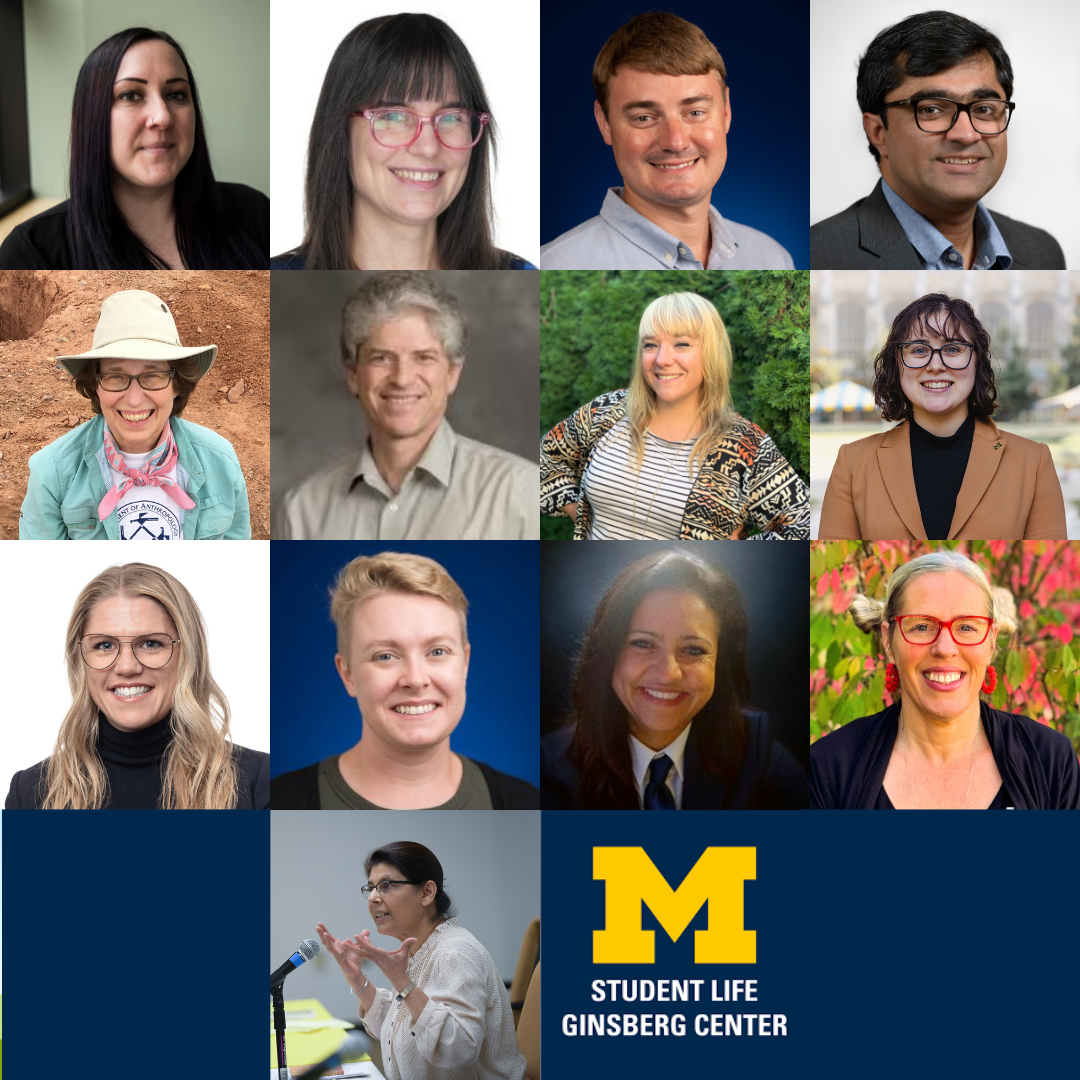
Ginsberg Center Communities of Practice (CoP) offer faculty and staff a semester-long cohort experience focused on interdisciplinary exchange and deeper discussion of community engagement (CE) in practice. Through discussion, activities, building relationships, and sharing resources, participants develop skills, knowledge and connections to advance their CE work at U-M and beyond. Our cohorts come from across the university and at various levels of community engagement experience, from just starting out to experienced practitioner.
Learn about current and past Ginsberg Community of Practice cohorts below, and consider joining us in the future!
Erika Barker
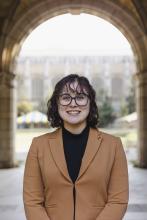
Erika Barker (she/they) is the Adaptive Sports and Fitness (ASF) Monitoring & Evaluation Coordinator. She is a graduate of the University of Michigan School of Social Work with a Master’s Degree in Social Work focused on Program Evaluation and Applied Research. They also have their B.S. from the University of Michigan School of Kinesiology in Movement Science with a minor in Dance. Erika is very passionate about research methods, methodologies, and social justice. Specifically, determining how to best ask questions and analyze data to increase inclusivity. Outside of work, they enjoy traveling, unsweetened iced tea, cross stitching, reading fantasy, and ballroom dancing.
Siobhan Barrett
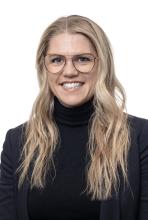
Siobhan Barrett joins the Detroit Entrepreneurs Project (DNEP) as Program and Business Development Manager, bringing valuable experience as a former ProsperUs Detroit Loan Officer and Rocket Mortgage senior banker. With a decade of entrepreneurial experience, including founding Siobhan Barrett Lingerie, she has demonstrated commitment to supporting minority entrepreneurs and community development. Her expertise in microloans and understanding of Detroit's business landscape makes her an ideal fit for DNEP. Based at the U-M Detroit Center, Siobhan's role focuses on fostering connections and partnerships to support economic growth, combining her financial knowledge with deep community engagement.
Djennin Casab

Djennin Casab is the Community Engagement Specialist for the Learning, Equity, and Problem Solving for the Public Good (LEAPS) program. In this role, she forges partnerships thatconnect LEAPS students with Detroit’s community-based organizations, nonprofits, and government entities, creating transformative learning experiences. Passionate about collaboration, Djennin amplifies the work of Detroiters while honoring the city’s ongoing efforts to
build vibrant communities.
With over 15 years of experience in community engagement, Djennin approaches her work with reciprocity, curiosity, learning, and humility. Before joining LEAPS, she was a community engagement specialist with Detroit’s Data Strategy & Analytics Open Data team, managed Wayne State University’s Community Engagement Registry, and directed Service-Learning and
Civic Engagement initiatives at Madonna University. She has also served on the board of Michigan Campus Compact and co-led the Detroit Data Coalition and the Government Open Data Access to All (GO DATA) Advisory Commission.
Djennin holds a master’s degree in Higher Education and Student Affairs from Madonna University and a bachelor’s degree from Universidad de las Américas in Mexico City. Based at the Marygrove Conservancy campus in northwest Detroit, she continues to foster partnerships that advance community-engaged learning and support Detroit’s communities.
Lisa DuRussel
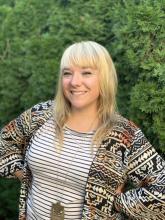
Lisa DuRussel, RLA, LEED AP, ASLA has a unique background as an educator, landscape architect, urban ecologist, builder and design activist. Her 15+ years of experience has resulted in a progressive landscape design portfolio of professional work, creative inquiry into ecology + design, a flexibility in teaching interests and enthusiasm for transdisciplinary collaboration within the academy and the profession. Her desire to teach was born from an interest to create a stronger connection between theory and practice - to expand practice by deepening design inquiry through the lens of landscape architecture. She has led the design and implementation of award-winning projects that innovate on ecological design as a project leader at established design firms: West 8 New York, Future Green Studio Brooklyn, MNLA New York, and Hoerr Schaudt Landscape Architects Chicago. Her own collaborative practice, dubbed Site Science, partners students (“Field Catalysts”) with nonprofits and community partners to use landscape as a lens to amplify thoughtful public engagement with collaborative action and impact.
Lisa has been supporting Michiganders since relocating back to her home state in 2020. Projects include support for Detroit residents through her involvement with Detroit Land Lab, PLOT plan realization, beautification grant material support, community soil sampling + assessment, and design. In addition to teaching graduate level courses on design, design thinking planting and public engagement at the University of Michigan, Lisa collaborates with firms OSD Outside on design implementation of an Arts Campus in downtown Detroit, with Unknown Studio on green infrastructure and urban afforestation initiatives in Baltimore and with Horizon Geospatial on geodesign- based community engagement workshops around the country.
Inderjit Kaur
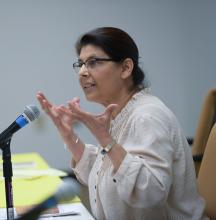
Inderjit N. Kaur is an ethnomusicologist and a public-facing scholar, with expertise in the music cultures of South Asia, spanning the classical, popular, folk, and devotional. Her research has focused on the deep experiences of worshippers participating in Sikh Sabad Kīrtan, through the analytical lenses and methodological approaches of phenomenology, and sound, sensory, and affect studies. She has been particularly interested in issues of the intertwining of aesthetics and ethics, representation of native epistemologies, and decolonization of the modes of academic research, writing, and teaching. Kaur has published and presented her research widely. Fieldwork and ethnography have been a mainstay of her scholarship, and she has worked closely with the Sikh community in several service and leadership roles. Kaur’s latest project aims to study musical worship as a wellspring of wellness, based on community engaged research with Sikh communities in Southeast Michigan.
Molly Manley
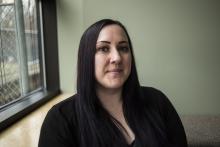
Molly Manley, MPP, currently serves as the Outreach and Engagement Specialist in the Office of Community-Engaged Learning (OCEL) on the UM-Dearborn campus. Ms. Manley leads the office’s day-to-day operations and programming. This includes implementation of the strategic plan, collaborating with campus and community partners, and general supervision of office staff. Ms. Manley and OCEL support faculty and student research with community partners, community-engaged coursework through partnership support and course attribute oversight, share engagement best practices campus-wide and are a landing place to help community navigate the University environment.
A graduate of the University of Michigan-Dearborn, Ms. Manley completed a Master of Public Policy with a focus in Justice Reform in 2018. During her time as a student, Ms. Manley was recognized as a Campus Difference Maker for her involvement in community. Ms. Manley first joined the University in 2011 as an AmeriCorps VISTA (Volunteer in Service to America), helping to create what would become OCEL. She was also one of four authors on a successful application that earned the Carnegie Community Engagement Classification for UM-Dearborn in 2015. She has helped develop OCEL and remains strongly committed to creating impact through University and community partnerships.
Vanessa Mayesky
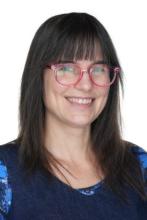
Vanessa Mayesky is the Residential College (RC) Community Programs Business Administrator and Associate Director of the Prison Creative Arts Project (PCAP). Her passion lies at the intersection of social justice and administration. At the RC, she provides administrative leadership and management support for PCAP, Semester in Detroit (SiD), Spanish Language Internship Program (SLIP), Telling It, and LSA’s engaged learning rideshare program. Vanessa started her public service career with two years of national service in the AmeriCorps VISTA program, followed by a decade in nonprofit fundraising and administration. She joined the University of Michigan staff in 2011. Vanessa holds a B.A. in Language and Power from the Residential College and an M.P.A. from the University of Michigan-Dearborn.
Mustafa Naseem
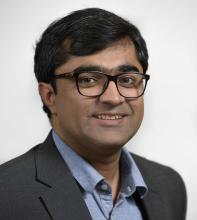
Mustafa Naseem is a Clinical Assistant Professor at the University of Michigan School of Information. His research and teaching focus on the intersection of technology, humanitarian innovation, and behavior change. Mustafa's recent work includes designing technologies to promote health-seeking behaviors among men in Pakistan and studying sociotechnical systems that support refugee communities in Southeast Michigan.
His work has been supported by the Bill and Melinda Gates Foundation, the National Institutes of Health (NIH), the National Science Foundation (NSF), the National Academies of Science, Engineering and Medicine, the United States Agency for International Development (USAID), among others.
With extensive experience in ICT, design, and entrepreneurship, Mustafa has led programs across Africa, Asia, and North America. Before joining the University of Michigan, he served as the ICTD Expert-in-Residence at the ATLAS Institute, University of Colorado Boulder. He earned a Master’s degree from the ATLAS Institute on a Fulbright Scholarship and was recognized as one of 12 finalists for the prestigious Rolex Awards for Enterprise Young Laureates in 2016.
David Porter
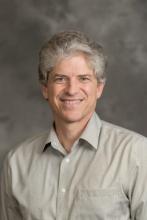
David Porter is a faculty member in English and Comparative Literature and director of the Detroit River Story Lab. A scholar of narrative and transcultural studies with a strong interest in place-based and experiential learning, he took a lead role in the creation of U-M’s new MA program in Transcultural Studies and Great Lakes Arts, Cultures, and Environments summer program at the BioStation, as well as the organization of LSA’s Great Lakes Theme Semester and the launch of the Detroit River Story Lab. As Chair of U-M’s Department of English, he spearheaded the development of new community-based learning courses in first-year writing and long-form journalism, built internship programs for graduate and undergraduate students, and established the presidentially funded Great Lakes Writers Corps.
Sam Stragand
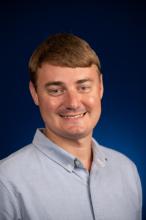
Sam Stragand is the senior program manager for the Detroit Partnership on Economic
Mobility at Poverty Solutions, where he works with community partners to conduct research and evaluation projects in Detroit. Stragand’s most recently co-authored the Harms Report for the Detroit Reparations Task Force. Prior to joining Poverty Solutions, Stragand worked with several Detroit organizations, including the City of Detroit’s Housing & Revitalization Department and Detroit Future City, while completing his Masters in Public Policy at the University of Michigan’s Ford School of Public Policy.
Prior to the Ford School, Stragand practiced landlord-tenant and housing discrimination law at fair housing organizations in both St. Louis and Detroit. Stragand co-founded a nonprofit, the St. Louis Mediation Project, focused on providing no-cost mediations in St. Louis’ housing courts, and continues to serve on its Board of Directors. Stragand also taught courses on landlord-tenant law and mediation as an adjunct professor at Washington University School of Law, his alma mater. Stragand grew up in St. Louis, Missouri, and received his B.A. in philosophy from Grinnell College in Iowa. After graduating, Stragand served two years in Peace Corps Turkmenistan. Stragand lives on the east side of Detroit with his partner Claire and their dog.
Tara Truax
Tara Truax is a Program Officer in the Community Engagement program at the Michigan Institute for Clinical and Health Research (MICHR), where she manages the Promoting Academic and Community Engagement (PACE) grant. This grant supports community and academic partnerships to share their research findings and reduce health disparities by engaging all community members in the research process.
Before joining MICHR, Tara worked for decades as a Social Worker in southeast Michigan in behavioral health and homeless services, managed SAMHSA and HUD grants with the Michigan Department of Health and Human Services, served as a Complex Care Manager at Michigan Medicine, and as Patient Relations Specialist for a large outpatient medical group. She is also 2025 President of the Ypsilanti Meals on Wheels board. Tara is dedicated to improving access to healthcare and resources for vulnerable populations, particularly in rural areas and for older adults and people with disabilities. She holds a Master’s in Health Services Administration from the University of Michigan School of Public Health and is a licensed Bachelor’s Social Worker.
Alexandra Vinson
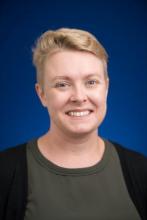
Alexandra H. Vinson, PhD, is Assistant Professor of Learning Health Sciences at the University of Michigan, where she is Faculty Lead of the Bipolar Disorder Learning Community in the Prechter Bipolar Research Program. Her research investigates how the medical profession adapts to its changing place in American society by reshaping medical training programs and how the American healthcare system can be transformed to support robust multistakeholder engagement in healthcare improvement work.
Lisa Young
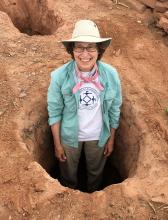
Lisa Young is a Teaching Professor and Lecturer IV in the department of anthropology. She is an anthropological archaeologist with research interests in the American Southwest and the history of museum collections. Her research and project-based
teaching emphasize community engagement and the use of digital technology for knowledge sharing. She is currently working on projects restoring connections between ethnobotanical collections in the Museum of Anthropological Archaeology with
Indigenous communities in North America, especially the Hopi community in northeastern Arizona. Her collections-based research supports community-led initiatives for food sovereignty, seed rematriation, and language revitalization.
Alison Rivett
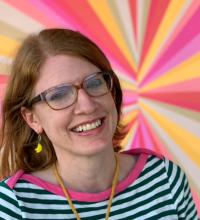
Alison Rivett is Associate Director of the Arts Initiative at the University of Michigan and a practicing visual artist. She received her MFA in art and design from the Stamps School at the University of Michigan in 2007 after studying both classics and art at the University of Wisconsin–Madison. She worked in exhibition design and visitor services at the Getty Museum, Los Angeles; American Museum of Magic, Marshall MI; and U-M Museum of Natural History. She taught painting at the University of Michigan before moving to Bangalore, India to teach and develop new programs at the Srishti Institute of Art, Design & Technology for seven years. Her current creative practice involves interpreting PhD dissertations through image-making. At the Arts Initiative, she manages Culture Corps, an internship program that matches undergraduate students to arts and culture organizations in Michigan.
Bridget Gruber
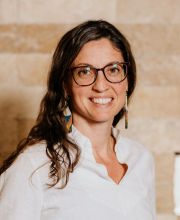
Bridget manages the U-M Graham Sustainability Institute’s education programs - the undergraduate Graham Sustainability Scholars program and the graduate Dow Sustainability Fellows program. Inspired by her love of the natural world, Bridget was trained at the U-M School for Environment and Sustainability. She then spent 8 years out west, first in Colorado then in California, working in the water and agriculture space. But Michigan would always be home and she eventually returned with her family. She taught environmental science courses at Washtenaw Community College and realized sustainability education was her mission! She has been a sustainability educator since 2018. Bridget’s students inspire her and give her hope for the future. She is also an Environmental Commissioner and a Climate Ambassador for the City of Ann Arbor. Bridget is in her happy place when playing volleyball, foraging for mushrooms, and traveling with her family.
Florian Schaub
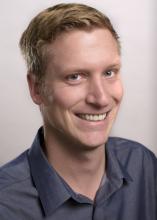
Florian Schaub is associate professor of Information and of Electrical Engineering and Computer Science at the University of Michigan. His interdisciplinary research combines privacy, human-computer interaction, emerging technologies, and public policy. He studies people's privacy decision making and behavior, investigates technology-related privacy implications, and develops human-centric privacy solutions that help people better manage their privacy in technology contexts. Dr. Schaub holds a PhD in Computer Science from the University of Ulm, and was a postdoctoral fellow in Carnegie Mellon University's School of Computer Science. His research has been honored with the 2019 Caspar Bowden Award for Outstanding Research in Privacy Enhancing Technologies. Dr. Schaub is a DARPA Young Faculty Award recipient. His research has directly impacted industry practice and public policy, including the rulemaking process for the California Consumer Privacy Act (CCPA).
Gabriela Marcu

Gabriela (Gabi) Marcu is an Assistant Professor in the University of Michigan School of Information. Her research focuses on understanding the role of technology in fostering social connection, building community, and caring for mental health and wellbeing. She is particularly interested in how technology can serve the needs of marginalized populations, and has worked on projects focused on responding to opioid overdoses, mentoring youth affected by gun violence, and supporting special education classrooms. In her teaching, Gabi uses project-based learning that enables students to dig into topics they care about in the community, as a way to learn about needs assessment and usability evaluation. Gabi likes to latin dance, karaoke, read on the beach, and she loves cats and dogs equally.
Julie Berson Grand
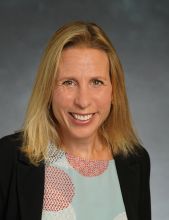
Julie Berson Grand is the Education Manager for the Science, Technology, and Public Policy (STPP) program. In this position, Julie provides management and oversight of STPP’s existing educational programs and oversees the development of new educational opportunities for a wide range of audiences. Prior to joining STPP, Julie worked as a pre-health academic advisor, lecturer in health policy, and health educator. She also served for eight years on the Ann Arbor City Council, focusing on policies related to housing, land use, and organizational health. Julie currently serves as a board member of the Ann Arbor Area Transportation Authority and the Jewish Federation of Greater Ann Arbor. She received her Ph.D. in Health Services Organization & Policy and her M.P.H. in Health Behavior and Health Education from the University of Michigan, as well as an A.B. in Anthropology from Bryn Mawr College.
Kate Hughey
Dr. Kate Hughey is a family physician and medical educator in the Department of Family Medicine at UM Medical School. Professionally fluent in Spanish, Dr. Hughey sees patients at Scarlett Middle School and at the University of Michigan Ypsilanti Health Center, where she focuses on culturally-aware and language-concordant care. In the medical school, she serves as the director of the Global Health and Disparities Path of Excellence, a co-curriculum focused on health equity in partnership with communities around the globe. Dr. Hughey completed her undergraduate education in religion and chemistry at Duke University (2007), medical school at the University of Chicago (2012), family medicine residency at the University of Michigan (2015), and community medicine fellowship at the University of Michigan (2016).
Lisa DuRussel

Lisa DuRussel, RLA, LEED AP, ASLA has a unique background as an educator, landscape architect, urban ecologist, builder and design activist. Her 15+ years of experience has resulted in a progressive landscape design portfolio of professional work, creative inquiry into ecology + design, a flexibility in teaching interests and enthusiasm for transdisciplinary collaboration within the academy and the profession. Her desire to teach was born from an interest to create a stronger connection between theory and practice - to expand practice by deepening design inquiry through the lens of landscape architecture. She has led the design and implementation of award-winning projects that innovate on ecological design as a project leader at established design firms: West 8 New York, Future Green Studio Brooklyn, MNLA New York, and Hoerr Schaudt Landscape Architects Chicago. Her own collaborative practice, dubbed Site Science, partners students (“Field Catalysts”) with nonprofits and community partners to use landscape as a lens to amplify thoughtful public engagement with collaborative action and impact.
Lisa has been supporting Michiganders since relocating back to her home state in 2020. Projects include support for Detroit residents through her involvement with Detroit Land Lab, PLOT plan realization, beautification grant material support, community soil sampling + assessment, and design. In addition to teaching graduate level courses on design, design thinking planting and public engagement at the University of Michigan, Lisa collaborates with firms OSD Outside on design implementation of an Arts Campus in downtown Detroit, with Unknown Studio on green infrastructure and urban afforestation initiatives in Baltimore and with Horizon Geospatial on geodesign- based community engagement workshops around the country.
Maggie Brodbeck
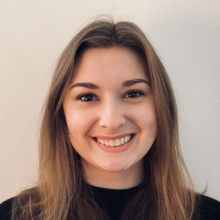
Maggie Brodbeck is the Data Science Programs Manager for the Engaged Learning Office at the University of Michigan School of Information. She develops co-curricular programs to enhance the educational experience of students studying information analysis and data science, in addition to enhancing client-based engagement opportunities in their courses. She particularly enjoys connecting data-focused projects with students that will bring impact to communities. Prior to joining the Engaged Learning Office, she worked in consulting, where she developed and implemented technology solutions for national and global companies. Maggie received her M.S. in Information from the University of Michigan and her B.A. in English from Butler University.
Mo Torres
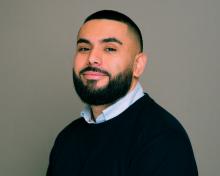
Mo Torres is a postdoctoral fellow in the Michigan Society of Fellows and an assistant professor of sociology and public policy. His research and teaching interests are in urban political economy and the sociology of race and racism. His current book project uses mixed and historical methods to explore the politics of post-industrial decline and urban austerity in Michigan from the 1970s to the present, with a focus on Detroit, Flint, and smaller cities like Pontiac and Benton Harbor. A first-generation college graduate, Mo studied history and Chicana/o Studies at UC Davis, public policy at the University of Michigan, and sociology at Harvard University. He is a former Detroit Public Schools teacher.
Samia Abdelnabi
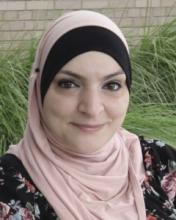
As a nurse scientist and nurse midwife, Dr. Abdelnabi’s research focuses on improving psychosocial well-being in Muslim women experiencing infertility. Her most recent work includes completing her dissertation on the lived experiences of second-generation Muslim American women with infertility and understanding to what extent sociocultural and religious factors impinge on the decision to seek treatment in reproductive health. Her future directions of research include creating and developing interventional programs using Traditional Arabic and Islamic Medicine (TAIM) to promote or enhance psychosocial well-being in Muslim American women with infertility. Dr. Abdelnabi is also interested in developing programs to promote reproductive and sexual health education in racial, ethnic, and marginalized groups.
Scott Tenbrink
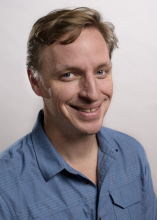
Scott is interested in the role information tools play in building community and civic engagement. As the Assistant Director of Civic Engagement, he builds partnerships with cities, and connects our students with them to create information tools, services, and systems that support 21st-century citizenship. He leads co-curricular opportunities like CUTgroup, National Day of Civic Hacking, and other programs with partner cities. Scott is also a lecturer, instructing project-oriented courses such as SI538: Citizen Interaction Design and SI350: UX Field Research In the Public Sector, and the BSI Capstone courses. He can help students to build experience and apply their emerging skills to the challenges facing cities and connect them with the people who want to improve their communities. Scott believes that information skills are important beyond your career goals; you can apply them to improve your, neighborhood, community, and world. Scott has a Master's Degree in Urban Planning and 15 years of experience collaborating with government and nonprofit organizations. He enjoys riding his bike, camping, board games, and loves traveling the world, but always returns to the Great Lakes state.
Susan Hardison Chase
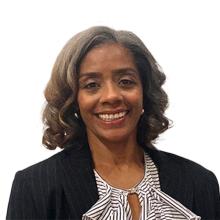
Susan Hardison Chase is a visiting clinical assistant professor of law in the Community Enterprise Clinic at the University of Michigan Law School. The clinic promotes economic and racial justice by providing transactional legal services to nonprofit and community based-organizations, social enterprises, and neighborhood-based small businesses in Detroit and other divested communities. Prior to teaching, she practiced as an attorney focusing on community economic development at a nonprofit organization in New York City. Susan seeks to improve and empower disenfranchised and marginalized communities by collaborating to advocate for equitable development and programs that promote community sustainability. She enjoys working in community and is interested in utilizing cooperative ownership models to combat gentrification and empower low-income workers. Susan enjoys traveling and learning about other cultures. She is a patron of the arts and undercover “foodie.”
William Alt
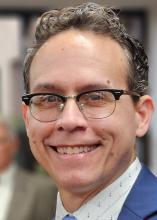
William Alt is the Coordinator of Community Engagement for the Michigan Community Scholars Program. MCSP is a living-learning community at the University of Michigan where students form a community in the West Quad Residence Hall while living the values of community engagement, social justice and dialogue. In his role, William prepares students to engage with community partners throughout Washtenaw County and Detroit and facilitates their reflection upon their experiences. He is passionate about cultivating community, promoting mutually-beneficial and just partnerships, and helping students understand that they are joining a community beyond the campus. William earned a BA in Theatre Arts from Virginia Tech and an MA in theology from the Washington Theological Union in Washington, DC. Before joining MCSP, he was very active in ensemble created, community based theatre and worked with University of Michigan students as a campus minister at St. Mary Student Parish. He lives with his wife and two sons in Ypsilanti and enjoys running ultramarathons, coaching his son’s cross country team, and exploring national parks with his family.
Gabriela Marcu

Gabriela (Gabi) Marcu is an Assistant Professor in the University of Michigan School of Information. Her research focuses on understanding the role of technology in fostering social connection, building community, and caring for mental health and wellbeing. She is particularly interested in how technology can serve the needs of marginalized populations, and has worked on projects focused on responding to opioid overdoses, mentoring youth affected by gun violence, and supporting special education classrooms. In her teaching, Gabi uses project-based learning that enables students to dig into topics they care about in the community, as a way to learn about needs assessment and usability evaluation. Gabi likes to latin dance, karaoke, read on the beach, and she loves cats and dogs equally.
Kate Hughey
Dr. Kate Hughey is a family physician and medical educator in the Department of Family Medicine at UM Medical School. Professionally fluent in Spanish, Dr. Hughey sees patients at Scarlett Middle School and at the University of Michigan Ypsilanti Health Center, where she focuses on culturally-aware and language-concordant care. In the medical school, she serves as the director of the Global Health and Disparities Path of Excellence, a co-curriculum focused on health equity in partnership with communities around the globe. Dr. Hughey completed her undergraduate education in religion and chemistry at Duke University (2007), medical school at the University of Chicago (2012), family medicine residency at the University of Michigan (2015), and community medicine fellowship at the University of Michigan (2016).
Lisa DuRussel

Lisa DuRussel, RLA, LEED AP, ASLA has a unique background as an educator, landscape architect, urban ecologist, builder and design activist. Her 15+ years of experience has resulted in a progressive landscape design portfolio of professional work, creative inquiry into ecology + design, a flexibility in teaching interests and enthusiasm for transdisciplinary collaboration within the academy and the profession. Her desire to teach was born from an interest to create a stronger connection between theory and practice - to expand practice by deepening design inquiry through the lens of landscape architecture. She has led the design and implementation of award-winning projects that innovate on ecological design as a project leader at established design firms: West 8 New York, Future Green Studio Brooklyn, MNLA New York, and Hoerr Schaudt Landscape Architects Chicago. Her own collaborative practice, dubbed Site Science, partners students (“Field Catalysts”) with nonprofits and community partners to use landscape as a lens to amplify thoughtful public engagement with collaborative action and impact.
Lisa has been supporting Michiganders since relocating back to her home state in 2020. Projects include support for Detroit residents through her involvement with Detroit Land Lab, PLOT plan realization, beautification grant material support, community soil sampling + assessment, and design. In addition to teaching graduate level courses on design, design thinking planting and public engagement at the University of Michigan, Lisa collaborates with firms OSD Outside on design implementation of an Arts Campus in downtown Detroit, with Unknown Studio on green infrastructure and urban afforestation initiatives in Baltimore and with Horizon Geospatial on geodesign- based community engagement workshops around the country.
Lori Donovan
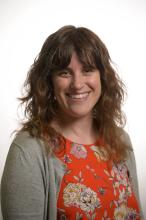
As Associate Director of External Engagement at the University of Michigan School of Information's Engaged Learning Office, Lori finds joy in connecting people with the information, services, and collaborations that will help them achieve their goals - primarily by connecting external clients with students who can apply the expertise they’re gaining in and outside of the UMSI classroom to real-world issues. She previously spent more than a decade building and sustaining community-focused programs at the Internet Archive, a non-profit digital library. Lori holds an MSI from the University of Michigan and studied Environmental History and Political Science at Boise State University. She enjoys spending time with family, carting her two kids around on their cargo bike, reading, and getting lost in the woods.
Mo Torres

Mo Torres is a postdoctoral fellow in the Michigan Society of Fellows and an assistant professor of sociology and public policy. His research and teaching interests are in urban political economy and the sociology of race and racism. His current book project uses mixed and historical methods to explore the politics of post-industrial decline and urban austerity in Michigan from the 1970s to the present, with a focus on Detroit, Flint, and smaller cities like Pontiac and Benton Harbor. A first-generation college graduate, Mo studied history and Chicana/o Studies at UC Davis, public policy at the University of Michigan, and sociology at Harvard University. He is a former Detroit Public Schools teacher.
Robin Brewer
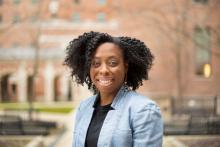
Robin Brewer is an Assistant Professor in the School of Information at the University of Michigan whose research is at the intersection of human-computer interaction, accessibility, and social computing. She studies how older adults and people with disabilities engage with technology, leveraging the strengths of these communities to design for connection, social well-being, and agency. Robin co-directs the Accessibility, Human-Computer Interaction, and Aging (AHA) lab, is a faculty affiliate of the Center for Ethics, Society, and Computing, and is an affiliated faculty member with the Digital Studies Institute. Robin’s research has been funded by an NSF CAREER award (2022), Google (2022), the National Institutes of Health (2022), the Retirement Research Foundation (2020), and the Department of Transportation (2018). She was also awarded the prestigious Anita Borg Early Career Award from the Computing Research Association (2023) and the President’s Postdoctoral Fellowship at the University of Michigan (2017). Robin received her B.S. in Computer Science from the University of Maryland, College Park, M.S. in Human-Centered Computing from the University of Maryland, Baltimore County, and Ph.D. in Technology and Social Behavior from Northwestern University.
Sadé Richardson
Sadé Richardson serves as Director of Strategic Initiatives in the Office of Public Health Practice at the University of Michigan School of Public Health. She coordinates experiential learning opportunities and oversees the Public Health Action Support Team (PHAST) and the Future Public Health Leaders Program (FPHLP). She also develops and maintains relationships with community stakeholders domestically and internationally to support Public Health in Action Courses.
During her early career, Sadé created a Self-Love for Activists toolkit, employing evidence-based practices to bolster resilience and belonging. This toolkit is used in wellness coaching, the Wellness Course, and throughout U-M Student Life.
Sadé holds a BA in Public Health and Digital Media Studies from the University of Rochester, an MPH in Health Behavior and Health Education, and an MSW in Management of Human Services from the University of Michigan and is pursuing a Doctor of Social Work at the University of Louisville. She has been recognized for her outstanding contributions to the field of public health and was honored to be included in the 2023 Beaumont's 40 under 40 in Public Health list for her remarkable achievements.
Samia Abdelnabi

As a nurse scientist and nurse midwife, Dr. Abdelnabi’s research focuses on improving psychosocial well-being in Muslim women experiencing infertility. Her most recent work includes completing her dissertation on the lived experiences of second-generation Muslim American women with infertility and understanding to what extent sociocultural and religious factors impinge on the decision to seek treatment in reproductive health. Her future directions of research include creating and developing interventional programs using Traditional Arabic and Islamic Medicine (TAIM) to promote or enhance psychosocial well-being in Muslim American women with infertility. Dr. Abdelnabi is also interested in developing programs to promote reproductive and sexual health education in racial, ethnic, and marginalized groups.
Sarah Peitzmeier
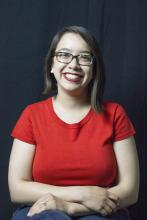
Sarah Peitzmeier, PhD is an Assistant Professor at the University of Michigan School of Nursing and School of Public Health. Her mixed-methods research focuses on the epidemiology and prevention of gender-based violence, as well as LGBTQ+ health and HIV. She has received funding from the NIH, the CDC, and the Canadian Institutes of Health Research, and is best known for her research to understand, screen for, and intervene on intimate partner violence in transgender populations, as well as her work around the health impacts of chest binding in transmasculine individuals. Her ongoing work includes intervention development studies to prevent campus sexual assault against transgender undergraduates and cisgender women undergraduates. She received her PhD from the Johns Hopkins Bloomberg School of Public Health in 2017.
Savannah Hall
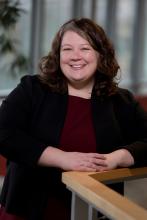
As the DEI Grants Consultant in the College of Engineering's Office of Culture, Community, and Equity (OCCE), Savannah helps faculty develop their grant proposals and writes proposals in support of OCCE's K-20 programs. She consults on DEI-specific sections of grants proposals - such as broader impacts, educational activities, community benefits, and culture of inclusion plans - for federal and corporate/foundation funders. Savannah holds a PhD in English from Indiana University with a research focus in cultural studies, de-colonial independence movements, and inclusive and equitable teaching practices. She enjoys bringing her humanities-focused lens to engineering disciplines, guiding faculty in articulating the potential social impact and ethical implications of their research.
Susan Hardison Chase

Susan Hardison Chase is a visiting clinical assistant professor of law in the Community Enterprise Clinic at the University of Michigan Law School. The clinic promotes economic and racial justice by providing transactional legal services to nonprofit and community based-organizations, social enterprises, and neighborhood-based small businesses in Detroit and other divested communities. Prior to teaching, she practiced as an attorney focusing on community economic development at a nonprofit organization in New York City. Susan seeks to improve and empower disenfranchised and marginalized communities by collaborating to advocate for equitable development and programs that promote community sustainability. She enjoys working in community and is interested in utilizing cooperative ownership models to combat gentrification and empower low-income workers. Susan enjoys traveling and learning about other cultures. She is a patron of the arts and undercover “foodie.”
Vanessa Mayesky

Vanessa Mayesky is the Residential College (RC) Community Programs Business Administrator and Associate Director of the Prison Creative Arts Project (PCAP). Her passion lies at the intersection of social justice and administration. At the RC, she provides administrative leadership and management support for PCAP, Semester in Detroit (SiD), Spanish Language Internship Program (SLIP), Telling It, and LSA’s engaged learning rideshare program. Vanessa started her public service career with two years of national service in the AmeriCorps VISTA program, followed by a decade in nonprofit fundraising and administration. She joined the University of Michigan staff in 2011. Vanessa holds a B.A. in Language and Power from the Residential College and an M.P.A. from the University of Michigan-Dearborn.
William Alt

William Alt is the Coordinator of Community Engagement for the Michigan Community Scholars Program. MCSP is a living-learning community at the University of Michigan where students form a community in the West Quad Residence Hall while living the values of community engagement, social justice and dialogue. In his role, William prepares students to engage with community partners throughout Washtenaw County and Detroit and facilitates their reflection upon their experiences. He is passionate about cultivating community, promoting mutually-beneficial and just partnerships, and helping students understand that they are joining a community beyond the campus. William earned a BA in Theatre Arts from Virginia Tech and an MA in theology from the Washington Theological Union in Washington, DC. Before joining MCSP, he was very active in ensemble created, community based theatre and worked with University of Michigan students as a campus minister at St. Mary Student Parish. He lives with his wife and two sons in Ypsilanti and enjoys running ultramarathons, coaching his son’s cross country team, and exploring national parks with his family.
